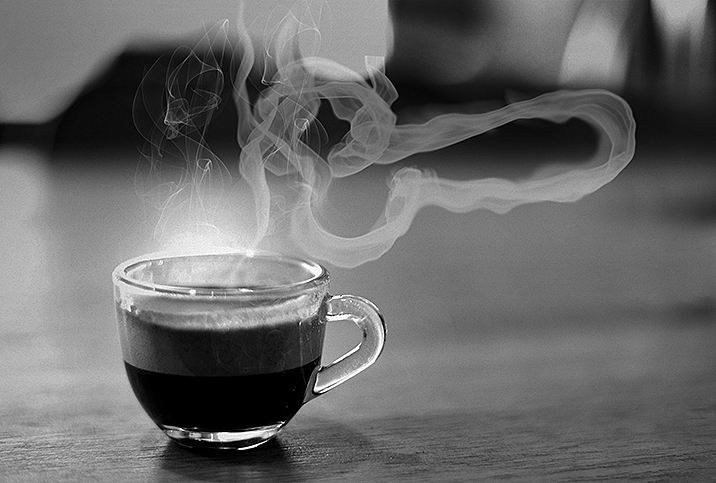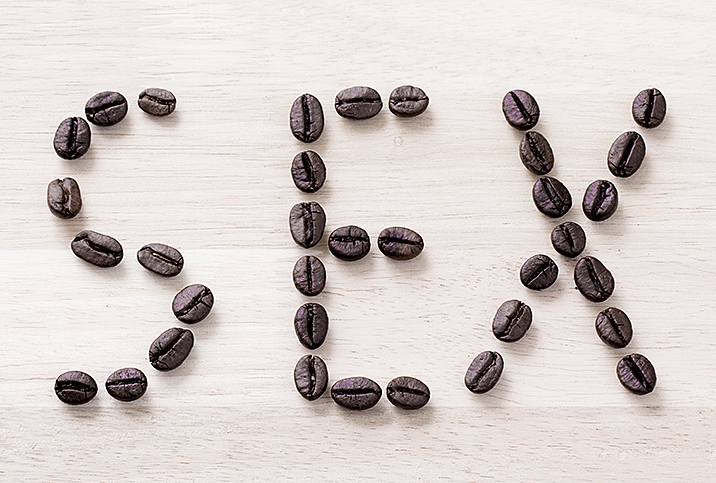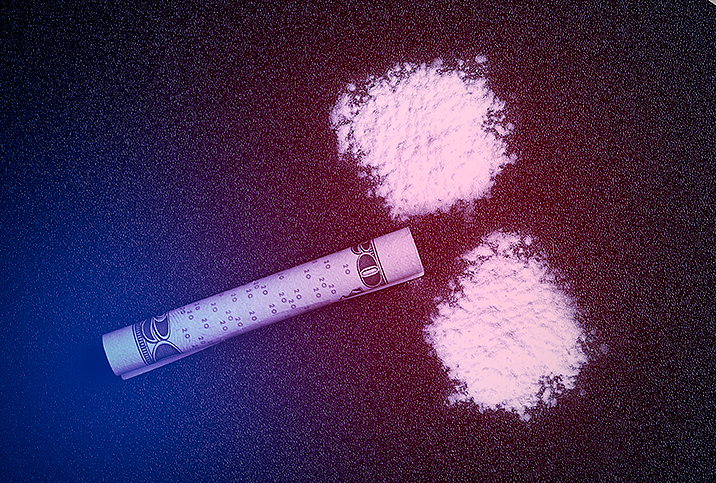Can a Cup of Coffee Jump-start Your Erection?

It’s important to remember when you’re sipping the first morning cup that caffeine is a stimulant, which increases the speed that messages are communicated to and from the brain.
Caffeine is commonly found in coffee, many teas, sodas, energy drinks, chocolate, energy bars, and weight-loss pills or powders. In fact, caffeine is the most commonly used drug in the United States and is consumed by 90 percent of Americans, with half of them consuming more than 300 milligrams (or about three cups of coffee) per day.
Physical effects of caffeine
The stimulant effects of caffeine typically cause feelings of alertness or wakefulness, and sometimes excitement. Now, that’s great for sleepy mornings when you need to wake up, but caffeine is still a drug, and drugs have side effects. Caffeine’s side effects can include anxiousness, restlessness, irritability, headaches, dehydration, frequent urination, increased heart rate and breathing, higher body temperature, gastrointestinal issues and difficulty sleeping.
Consuming excessive amounts of caffeine, more than 400 milligrams (mg) per day (or about four cups of coffee), can cause tremors, nausea and vomiting, diarrhea, confusion, panic and seizures. Long-term use has been associated with sleeping problems, osteoporosis in women, ulcers, weakness, fatigue and low blood pressure. Caffeine can be very dangerous when mixed with other drugs, such as ephedrine, echinacea, depressants and psychoactive drugs.
Liquid and powder forms of caffeine are especially dangerous, with one teaspoon of caffeine powder possibly equating to up to 28 cups of coffee.
And if you’re pooh-poohing the idea of caffeine being a powerful drug, try going cold turkey. Go ahead, give up your morning coffee. Within 12 to 24 hours, caffeine withdrawal can cause headaches, sweating, depressed mood, irritability and flu-like symptoms.
Given caffeine’s many side effects, children, adolescents and pregnant women should avoid or limit its intake.
Taken in moderation, however, caffeine can actually help some headache or migraine sufferers, and coffee has been linked to reduced risk of diabetes and heart disease, two conditions that can cause erectile dysfunction (ED).
How it affects your penis
Ironically, caffeine is one of the few recreational drugs that may be linked to improved erections. In fact, it may reduce risk of erectile dysfunction by relaxing arteries and smooth muscle tissue in the penis, improving the blood flow essential for a firm erection.
A 2015 study found males who drank two to three cups of coffee (170 to 300 mg caffeine) were less likely to experience ED compared to those with a low caffeine intake. However, not all studies have found benefits, and more data are needed before we can fully understand the impact of caffeine on the penis.
Impact on sex
Fifty percent of men older than 50 have at least some issues with ED. This can make penetrative sex difficult to impossible, and lead to stress, anxiety and loss of confidence. It may also put a strain on relationships or make it difficult to establish new ones.
Erectile dysfunction has different causes, and caffeine is unlikely to solve the issue on its own. But in moderation, caffeine may improve erections for some guys, and that would be a boost for your sex life. If you are struggling with erectile dysfunction, see your doctor, who can recommend properly studied treatments, and ask whether caffeine would be an appropriate supplemental treatment.
Safety & tips
Daily consumption of caffeine shouldn’t exceed 400 mg, or about four cups of coffee. Know how much you’re consuming and be aware of hidden caffeine in medications, sodas, energy/sports bars and powders, and weight-loss supplements.
Always stay hydrated and cut off caffeine consumption at least six hours before bed. If you need to reduce caffeine intake, do so slowly and cut back by the equivalent of one caffeinated drink per day. If you still enjoy coffee or tea but need to lower the caffeine content, try decaf or brew your drink for a shorter amount of time.
Whether it stiffens your erection or leaves you excited and ready for sex, caffeine could help fortify your sex life.
Cup o’ Joe, anyone?

















